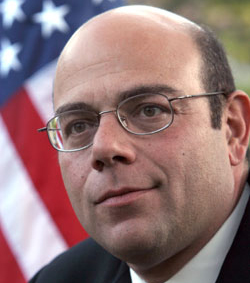
Garen Yegparian
BY GAREN YEGPARIAN
It’s ridiculous how much Soviet–era nonsense still persists in the Republic of Armenia a quarter-century of the collapse of the USSR. The expectation that improvements will come from the top down, ONLY, is one example. People do not think that they have the power to improve their (and the country’s) lot by dint of their own work. But even more ridiculous is some of the anti-ARF propaganda that is still believed. A friend living in Yerevan just related a story about a doctor, a seemingly sensible man, who is active in one of the major political parties of the country. They met at a social gathering. This doctor proceeded to ask why the ARF had not yet returned the gold taken out of the country when the Soviets took over after toppling the first republic. He even cited the Lithuanian case where the pre-WWII government had taken its gold out of the country when the Soviets took over. When the USSR broke apart, it was returned… but even this story is not correct, it turns out, as the gold had been stored in Europe even BEFORE the takeover!. The lie about the ARF and gold is decades old, yet it still persists. Enough.
Then there’s the “opposite” phenomenon at play when economic elites rely on people’s forgetfulness. The best example of this is the vilification directed at government regulations. For at least three decades, in the U.S. anyway, there has been an incessant drumbeat about how bad regulations are. They allegedly stifle business growth, cause job losses, are bad for the economy, are a waste of time, or just a sign of government overreach. What is conveniently ignored in the hopes it will be forgotten is WHY those regulations exist. Think about or remember the days when:
1- people died from breathing horribly bad air
2- coal miners by the thousands died of “accidents” (really profit induced reckless disregard for safety) and lung diseases
3- fish died off and water flamed in rivers ridiculously polluted
4- factories had locked-in workers who burned to death in fires because there was no exit
5- underpaid, but fulltime employees were unable to feed their families
6- add your own example
Addressing these ills and more is why society regulates behavior. Plus, many of the same people who support the “don’t-regulate” approach have no qualms about regulating whether women can have abortions or what people can do in the privacy of their own homes. Enough.
But it’s even worse. The anti-regulation propaganda is part of a larger effort to discredit important, people-oriented, institutions. Take government for example. “Politicians” are routinely vilified. Some deserve it, most don’t. The most telling bit of information in this regard is the repeated results of polling wherein Americans consistently dislike “Congress” but love their own member of Congress. That’s a pretty stark contradiction and very revealing about how the constant debasement of elected officials is taking its toll on the very functioning of government. In a democracy such as the U.S. it matters that people have confidence in their elected leaders. Add to this that the WINNER of a presidential election is alleging fraud, and you can see how the legitimacy of all things governmental is being targeted. Absent that legitimacy, things won’t function. It suits the interest of anti-government activists to create this credibility gap with an image of government that “doesn’t work” for its citizens. That way, they can dismantle all the good aspects of government that experience has shown benefit people. Just to close this aspect of the discussion on a humorous note, there’s the story (likely apocryphal) of the Medicare recipient who said “Keep the government’s hands of my Medicare!”. Enough.
Finally, we have the media, another key institution to the maintenance of a healthy, accountably run, democratic republic such as the U.S. Yet much of the media has been maligned over the last few decades for purportedly having a “liberal bias” which is, it seems, only apparent to right-wing types. The fact that most misbehavior in society comes from two sectors – the “criminals” and the elites, seems to be forgotten. When the media exposes the wrongdoings of the elites, who tend to be more conservative, all of a sudden it becomes labeled as “liberal bias” just for doing what good journalists are supposed to do. Now, the conservative, anti-media propagandists are making a new, more nuanced and subtle, argument. We are expected to believe that professional journalists write with and select topics to cover based on a “liberal” bias because a majority hold liberal views personally. If this were true, Donald Trump would not have gotten the massive amount of free media (by one estimate valued at $2 billion) that he did during the election. Enough.
Undermining people’s confidence in important institutions for political/partisan gain is not only sleazy, but dangerous. It can shake the foundations of society. In the case of the U.S., as the world’s hegemon, the international ramifications could even lead to war. Each of the above irritants alone is bad, but taken together, the situation becomes grave. Plus, in the case of Armenians, given the infirmity of the institutions of our young republics, this kind of example in the world’s leading democracy is exceedingly unhelpful. Enough.
It’s interesting that I am encountering relatively little discussion of these issues in Armenian circles. Do we not care enough to speak and act?
Source: Asbarez
Link: Irritants XX
